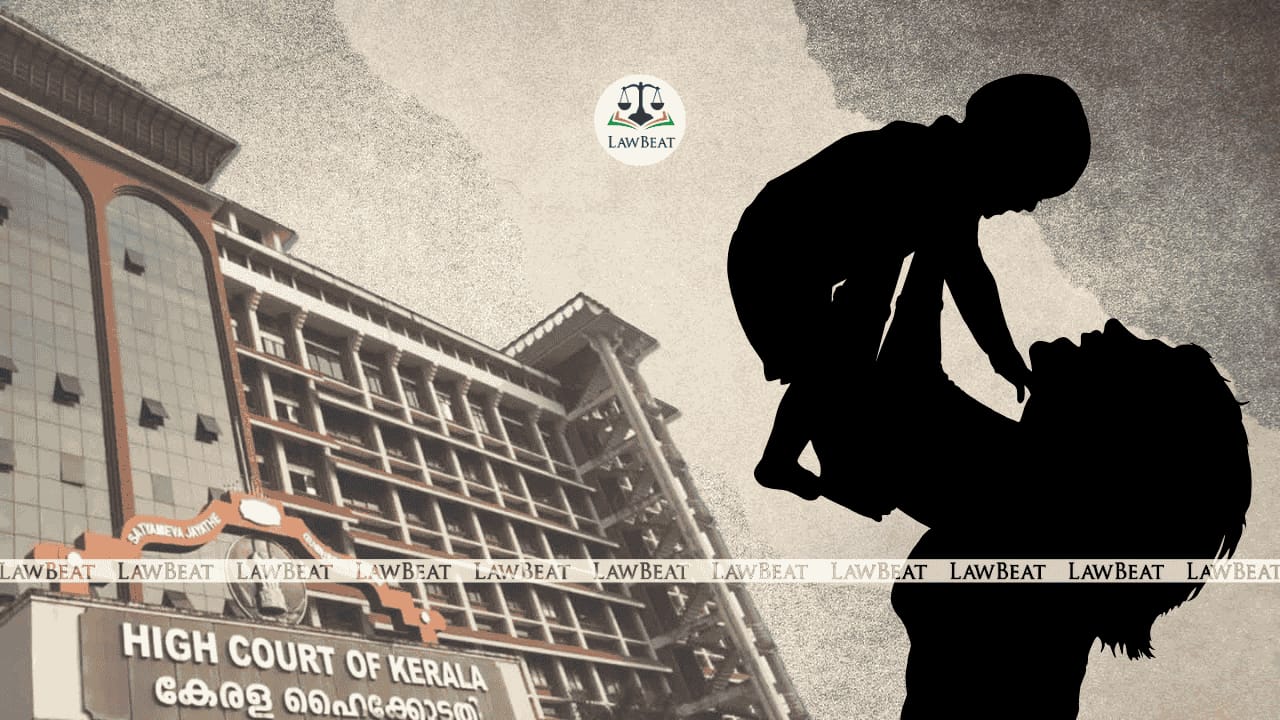Post-Partum Depression Common & Temporary, Not Sufficient Ground to Deny Custody of Child to Mother : Kerala HC

The court underscored that postpartum depression cannot be the sole ground for denial of custody to mother as it is commonly temporary and does not persist indefinitely
The Kerala High Court has overturned a Family Court’s decision that granted permanent custody of a one-and-a-half-year-old girl to the father based on medical records of the mother indicating that she suffered from post-partum depression.
The Division bench comprising Justice Devan Ramachandran and Justice M.B. Snehalatha ruled in favour of the mother (petitioner), observing that “postpartum depression is rather common in some women and that this is not a situation that will continue forever, but most of the time being temporary, for a short duration” and the same cannot be sufficient ground to deny custody of the child to mother.
The court’s ruling came on a plea filed by the mother, challenging the custody order passed by the family court in Mavelikkara. The family court had previously granted overnight interim custody to the father through an order dated May 22, 2024. Subsequently, the father filed applications seeking permanent and interim custody, alleging that the mother suffered from psychiatric disorders. The family court accepted these claims and issued orders allowing the father's petitions. The mother’s review petition was rejected, resulting in another order that directed a woman police officer to take custody of the child and hand him over to the father.
The petitioner asserted that there was no basis for claiming she had ongoing psychiatric issues. It was argued that the family court’s reliance on records from February 2023, shortly after childbirth, was outdated and did not reflect her current mental state. It was also highlighted that the child was still breastfeeding and unwilling to stay with the father, suggesting that separation would cause significant trauma and stress to the mother.
The plea was opposed by the father (respondent) contending that the mother exhibited deep postpartum disorder, lacked maternal affinity, and posed risks to the child's well-being. The respondent requested that the custody be continued with him, supporting his claims with medical records of the mother.
The court considered a detailed evaluation report from the Department of Psychiatry, Government Medical College, Ernakulam. The report, based on a mental status examination conducted on November 5, 2024, found the petitioner conscious, coherent, and without any major psychiatric disorders. “It is thus obvious that the presumption of the Family Court regarding the alleged psychiatric issues of the petitioner cannot be found favour with, at least as of now, without further evidence and assessment,” the court noted, concluding that the family court’s decision to assume psychiatric impairment based solely on previous medical records was unjustified.
“To allege that the petitioner-wife is still suffering from postpartum depression and is even unwilling to nurse the child, certainly requires to be established through cogent and reliable methods; but, in our firm view, could not have been so declared by the Family Court,” the court said.
The court, thus, rejected the father’s argument that the mother’s condition endangered the child, seting aside the custody orders. The court stated, “we cannot find the afore apprehension to be fully tenable, at least from a prima facie point of view.”
The matter was remanded back to the family court, with a direction to re-examine the case after giving both parties the opportunity to present updated evidence.
Case Number : OP (FC) NO. 671 OF 2024
